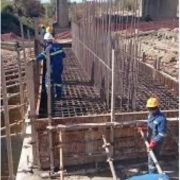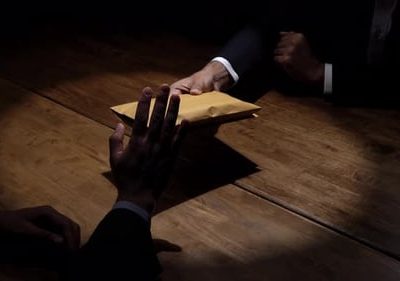In his argument on behalf of Mr Kika’s application, Adv Eric Matinenga stressed the need to uphold the integrity of the court emphasising on the constitutional requirement of impartiality and independence of an adjudicating body given the circumstances surrounding a matter.The Constitutional Court will now decide the validity of the High Court order blocking Chief Justice Luke Malaba from opting under the Constitution to stay in office for an additional five years after retirement age.
He said that because the judges were cited in the lower court, they were in an invidious position, so they should step down.
In the middle of his submission, Deputy Chief Justice Gwaunza asked Adv Matinenga if it was reasonable for all the judges to be recused, suggesting that it looked like there were cited specifically to disable all the judges from hearing this case, after the order of the High Court.
The court also benefited from the legal knowledge of Adv Tawanda Zhuwarara who was invited as a friend of the court. He clarified the law and made it clear that the court could not accept a position that would disable all the judges from hearing the matter.
He alluded to Section 175 (1) of the Constitution which he said institutionalises the court’s supervisory role by limiting every other court’s ability to issue effectual orders “concerning the constitutional invalidity of any law or any conduct of the President or Parliament.
“Put more sharply, no court can issue an order concerning the constitutional invalidity of any law or any conduct of the President or Parliament, unless such order is probed and confirmed by this court,” he said.
“It is from this vantage point that this court should conclude that it can neither abdicate nor avoid confirmation proceedings once initiated and are properly before it. Put differently, it is in cognisance of this court’s supervisory role that the present matter cannot be avoided and must be determined.”
Adv Zhuwarara added that once it is established that the declaratory order in Mr Kika’s case is one described in Section 175 (1) of the Constitution then the Constitutional Court must interrogate such decision in terms of the Constitution.
“Lest it be forgotten that our Constitution is designed in such a way that this court must have the final word in all questions constitutional,” he said.
To this end, the court found favour in the arguments by the legal counsel opposing the application for recusal.
“The application for recusal is dismissed. Full reasons of the court will be contained in the main judgment,” said Deputy Chief Justice Gwaunza.
She adjourned the hearing to tomorrow. However, Adv Matinenga indicated that he was not instructed to argue the matter and would not be available.
While the full reasons for the decision will be given later, the Constitutional Court agreed with the legal argument that it cannot abdicate its role set out in the Constitution and that every order on a constitutional matter by a lower court needs to be interrogated and confirmed by the Constitutional Court.
The full bench of the Constitutional Court, with only Chief Justice Malaba absent as he is at the centre of the case, dismissed an application by NGO Forum executive director Mr Musa Kika seeking the recusal of the entire bench from the case on the grounds that the judges were cited in the High Court case.
The court hearing was presided over by Deputy Chief Justice Elizabeth Gwaunza sitting with the other five judges.
Mr Kika had rushed to block the Constitutional Court judges from hearing Bulawayo man Mr Marx Mupungu who had approached the Constitutional Court for an order nullifying the High Court order. Mr Mupungu, represented by Professor Lovemore Madhuku, wants the Constitutional Court to rule that the High Court order is invalid unless confirmed by the Constitutional Court, and then he has asked for it not to be confirmed.
Mr Kika brought the original application to the High Court to have an order declaring that the recent constitutional amendment did not grant the sitting Chief Justice the right to opt to extend his term.
He then lost a second High Court application when he tried to block the Chief Justice resuming his office pending the outcome of an appeal.
Professor Madhuku and Advocate Thembinkosi Magwaliba, who was acting for the Ministry of Justice, Legal and Parliamentary Affairs, opposed Mr Kika’s application for recusal.
Prof Madhuku argued that the Constitution did not permit the recusal of all the judges of the Constitutional Court since there was no constitutional mechanism for constituting the court in the event of all judges recusing themselves. For that reason it was not competent to seek a recusal of all the judges.
“The Constitution does not permit the appointment of judges for a specific matter or the creation of a court for one case,” he said citing Section 164 of the Constitution which requires the courts to be independent at all times.
The constitutional law expert also argued that even if mass recusal was permitted, Mr Kika had not met the test for recusal. There was a presumption of judicial impartiality for all judges and a presumption that senior judges have a higher level of impartiality. The threshold for a successful challenge of impartiality was therefore high.
Adv Magwaliba by and large subscribed to Prof Madhuku’s submissions, but added that Mr Kika joining all the Constitutional Court judges in his original High Court proceedings was malafide and intended not only to embarrass the judges but to render it impossible for the Constitutional Court to hear any appeal or matter relating to the same issue.
Adv Magwaliba described this as a deliberate attempt to make the High Court order final.
Mr Addington Chinake, who argued for the Judicial Service Commission, was in agreement with the two.










Comments